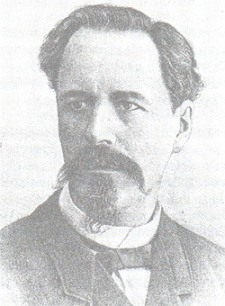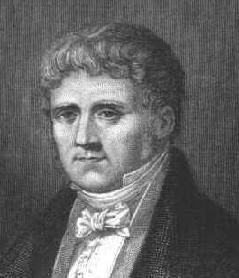| << Chapter < Page | Chapter >> Page > |
AMPUERO: “Once traversing the Alto de la Virgen, you enter Dalek” Ampuero’s Spanish text: “Una vez pasado el Alto de la Vírgen, se entra en Dalek” ( Las mujeres 166). ( Spanish, Portuguese, and American Women 166).
Also of interest is the fact that the plagiarized text does not describe the women of Ecuador, but rather focuses on a route through the country.
Historia moral , written by Francisco Nacente, details the role of women in society (both civilized and uncivilized) in two volumes. Prominent examples of plagiarism include the sections titled “The Toltec” (p. 433), “The Tale of Xochitl” (pp. 433-435), and “The Peruvian Indians” (pp. 437-439).
“The Toltec” and “The Tale of Xochitl” include text plagiarized from Antonio García Cubas’ Escritos diversos de 1870 a 1874 (“Diverse writings from 1870 to 1874”). In these sections, the reader will note that Nacente omitted some of García Cubas' sentences and added a few of his own; yet, he maintains a word-for-word borrowing of the rest of the text.
Antonio garcía cubas

“The Peruvian Indians,” was copied from Conrad Malte-Brun’s Précis de la géographie universelle ou description de toutes les parties du monde (“Universal Geography, Or a Description of All the Parts of the World.”). Once again, there is an instance of translation plagiarism, where Nacente translates Malte-Brun's original French and passes it off as his own. Although Nacente fails to cite Malte-Brun, he does include the latter’s own notes, which cite Inca Garcilaso de la Vega, Agustín Zarate, the Peruvian newspaper Mercurio peruviano (“Peruvian Mercury”), and Viajero universal (“Universal Traveler”).
Conrad malte-brun

The type or genre of literature plagiarized is important to note, since different genres have various implications on cultural significance. These particular instances of plagiarism, for example, can prompt discussions on the importance and circulation of the travel narrative and its ability to grant access to places and cultures unknown. The implication in this case being that, perhaps the authors did not or could not travel to the regions they sought to describe.
These examples also bring in to question the matter of plagiarism in translation. Some questions include:
Literature, as well as the ideas contained in texts, did not remain confined to the national borders, rather it moved fluidly across borders and languages. In addition, author’s and publisher’s rights (which varied from country to country and evolved at different rates) would have changed depending on the country and time period. Studying plagiarism can, therefore, map global contact zones linking authors and readers across the globe and even through time, simultaneously answering the question: who was reading whom? , and asking: what belonged to whom?
For further reading, see:
Bjørnstad, Hall. Borrowed Feathers: Plagiarism and the Limits of Imitation in Early Modern Europe. Norway: Unipub, 2008.
Kewes, Paulina (Ed.) Plagiarism in Early Modern England. Houndmills: Palgrave MacMillan, 2003.
Parker, Philip M. (Ed.) Plagiarism: Webster's Timeline History 1583-2007. San Diego, CA: ICON Group International, Inc., 2009.
Pabón Núñez, Lucio. Del plagio y de las influencias literarias, y otras tentativas de ensayo. Bogotá: Imprenta Nacional, 1965.
Randall, Marilyn. Pragmatic Plagiarism: Authorship, Profit, and Power. Toronto: University of Toronto Press, 2001.
Sánchez de la Cuesta, Gabriel. Impugnación y defensa del plagio. Discurso de recepción en la Real Academia Sevillana de Buenas Letras. Sevilla, 1952.
Visit El Plagio Literario's Bibliografía page for a more extensive list of bibliographic resources (in a variety of languages):
Conrad Malte-Brun, Précis de la géographie universelle ou description de toutes les parties du monde. Vol. 5, 2 nd edition. Paris: Chez Volland le Jeune, Libratre, 1821. pp. 593-603.
Caldas, Francisco José de. “Viaje de Quito a Popayan” in Obras completas de Francisco José de Caldas. Bogota: Universidad de Colombia, 1966.
García Cubas, Antonio. Escritos diversos de 1870 a 1874. Mexico: Imprenta de Ignacio Escalante, 1874, pp 349-356.
García Cubas, Antonio. The Republic of Mexico in 1876 , trans. George F. Henderson. Mexico: La Enseñanza Printing Office, 1876, pp 47-51.
Mollien, Gaspard Théodore. Voyage Dans la République de Colombia, en 1823. Vol. 2 Paris : Chez Arthus Bertrand, Librare, 1824.
Mollien, Gaspard Théodore. Travels in the Republic of Colombia, in the years 1822 and 1823. Translation. London: C. Knight, Pall-Mall East, 1824.

Notification Switch
Would you like to follow the 'Print culture in the americas' conversation and receive update notifications?